#Louis Napoléon
Explore tagged Tumblr posts
Text
A gift for @all-yn-oween :)

First time drawing Gilles :D
About the caption: yes, it was inspired by the title of one of the Astérix BDs 😅 I've always liked this title a lot, so why not do something inspired by it?
Plus bonus sketches:


Anyway, have a good day 🥳
#Gilles Boidin (Allyn's OC)#Kazimir Semenov (Allyn's OC)#Gustave Bréant (Allyn's OC)#Louis Napoléon#✨Gossip Queens✨#Allyn's OCs#my drawings
23 notes
·
View notes
Text
Happy Valentine’s Day! With the Gossip Queens of course…
I might do some more of these, they’re funny to do >:)

#✨gossip queens✨#louis napoléon#Gustave Bréant (OC)#is my first drawing posted after four months a drawing for valentine day ? yes#got other things to post but it’ll come…. one day….#natm ocs#my art :)
13 notes
·
View notes
Text
Bienvenue sur le compte Tumblr de France Bonapartiste

Notre histoire nationale est depuis de trop longues années déjà mise à l’écart au profit de la connaissance européenne et mondiale. Nous ne pouvons pourtant bâtir les fondations de l’avenir sur des bases instables, en méconnaissance de notre passé. Souvent il a été glorieux, parfois il a été sombre. Les personnages historiques qui ont façonné notre pays doivent être sorti de l’ombre et leurs actions doivent être pleinement étudiées, sans raccourcis qui pourraient nous perdre dans de funestes horizons.
Par ce cercle de réflexion historique, nous souhaitons ainsi embrasser notre récit national pour comprendre quels ont été les chemins glorieux et les sentiers escarpés.
Nous souhaitons partager avec vous ces heures éblouissantes qui ont fait la France ; la Révolution française et le souffle nouveau qu’a apporté notre Nation à l’Europe voire même au monde entier, dans ses heures éclatantes mais aussi et parfois dans ses moments les plus sombres ; la naissance et l’œuvre phénoménale de l’homme providentiel en la personne de Napoléon Bonaparte qu’elle soit militaire, architecturale, diplomatique comme politique et qui a mené par son génie la France sur le toit du monde ; la vision et le profond attachement de Louis-Napoléon Bonaparte avec les Français qui l’élisent premier président de la République française en 1848 et qui deviendra l’Empereur Napoléon III aux réalisations sociales ayant données le « la » à nos droits sociaux actuels ; les deux guerres mondiales ayant apporté la terreur mais qui a vu également émerger des figures héroïques telles De Gaulle, Jean Moulin, Simone Veil, Joséphine Baker et tant d’autres, qui représentent par-delà leur personne, la France.
Il n’est point question d’effacer des pans entiers de notre histoire nationale, mais au contraire de la mettre en lumière et d’en étudier toutes les facettes pour comprendre comment notre Nation s’est aujourd’hui constituée !
Ce compte tumblr se veut être le pendant de notre site internet, afin que nous puissions partager sur ce réseau social de différents articles, photos, analyses et découvrir des comptes fascinants.
N'hésitez pas à nous suivre !
#napoleon#bonaparte#france#napoleon bonaparte#histoire#Culture#history#wwii#seconde guerre mondiale#Louis Napoléon#de gaulle#Jean Moulin#Simone Veil#Joséphine Baker
7 notes
·
View notes
Text
Luís Napoleão, Príncipe Imperial 1856-1879
Filho único de Napoleão III e da Imperatriz Eugénie, o príncipe mudou-se com seus pais para a Inglaterra após a remoção de seu pai do trono em 1870. Napoleão morreu em 1873, e Louis (conhecido por sua família como Loulou) convenceu o governo britânico a permitir ele a participar da Guerra Anglo-Zulu, apesar das fortes objeções dos bonapartistas, que desejavam ver o retorno da dinastia ao trono da França. Apesar de seu papel como observador ostensivo e dos esforços para mantê-lo longe do conflito direto, o príncipe foi emboscado e morto enquanto tentava montar em seu cavalo. Ele tinha 23 anos.

Louis Napoléon, Prince lmperial 1856-1879
The only child of Napoleon III and Empress Eugénie, the prince moved with his parents to England upon his father’s removal from the throne in 1870. Napoléon died in 1873, and Louis (known to his family as Loulou), convinced the British government to allow him to participate in the Anglo-Zulu War, over the strong objections of Bonapartists, who wished to see a return of the dynasty to the throne of France. Despite his role as ostensible observer and efforts to keep him away from direct conflict, the prince was ambushed and killed while attempting to mount his horse. He was 23 years old.
28 notes
·
View notes
Text








the bonaparte siblings (requested by anon)
"They were not worried about seeming out of place, they did not fear making mistakes or doing something silly; they had no concern for responsibilities; they had a self-confidence that was not even accompanied by a sense of the duties high position entailed. And this self-confidence sustained them despite everything, and so long as their luck held, it made easy for them things that to others seemed simply impossible. […] The audacity to attempt everything, the certainty of succeeding everywhere— in short, all the attributes of genius, except for genius." — Frédéric Masson
J O S E P H's close bond with the Emperor was often tested throughout their political careers, but never broken. He was without question his closest companion but proved to be more successful as a businessman before and after the Empire.
L U C I E N was never offered a crown or a throne, and broke off from the rest of the family as early as the 1800s. He frequently opposed his brothers' views and notably refused to divorce his wife in favor of a diplomatic alliance. Unlike his siblings, his title was bestowed by the Pope.
E L I S A, contrary to her sisters who primarily held consort roles or acted as strawmen, is believed to be the only Bonaparte sister, and only woman, with actual political powers bestowed by the Emperor. She's the only one of the adult siblings to die before him.
L O U I S' frequent conflicts with the Emperor led Napoléon to annex the Kingdom of Holland in 1810, driving him and his family into exile. Louis would go on to become the father of Napoléon III.
Despite a tumultuous relationship, P A U L I N E was considered Napoléon's favorite sister, and proved to be the most loyal of the imperial siblings, liquidating her assets and visiting him in Elba.
Often regarded as the most influential of the Bonaparte sisters, C A R O L I N E was constantly caught in-between her husband and her brother. She was instrumental in the divorce and remarriage of the Emperor. Her political legacy not only didn't survive the fall of the Empire, but effectively predated it through a series of conflicts with her brother.
J E R O M E was the last sibling standing by 1860, and out of them all was the only one to support the Emperor at Waterloo. He would also be the only one to see the re-creation of the Empire and his nephew on the throne.
#perioddramaedit#historyedit#mine#19th century#*#napoléon bonaparte#jérôme bonaparte#elisa bonaparte#pauline bonaparte#louis bonaparte#lucien bonaparte#caroline bonaparte#joseph bonaparte
352 notes
·
View notes
Text

#henri grobet#art#histoire de france#french#france#history#flags#europe#european#medieval#middle ages#napoleonic#franks#frankish#gauls#gallic#charlemagne#napoleon bonaparte#napoléon bonaparte#louis xiv#francis i#vercingetorix#saint louis#philip augustus#louis xi#mediaeval
55 notes
·
View notes
Text









France during the Marriage of Napoleon and Marie Louise (Album du mariage de Marie-Louise et Napoléon Ier)
By Louis-Pierre Baltard — On the occasion of the wedding of Emperor Napoleon I and Archduchess Marie-Louise of Austria, an illustrator, Louis-Pierre Baltard (1764-1846), undertook to retrace the ceremonies and festivals of the spring of 1810 and to make it the subject of an album drawn of eighteen sheets.
Images:
Illumination du Panthéon
Vue de l'Hôtel de Ville illuminé avec la tribune Impériale construite pour la circonstance
Illumination du pont de la Concorde et du Palais du Corps Législatif
Le Retour du cortège par la Galerie du Musée
Feu d'artifices et son décor élevé de l'autre de la Seine, quai Napoléon
Festin dans la deuxième salle provisoire construite dans la cour de l'Ecole Militaire
Le Banquet Impérial dans la salle de spectateur des Tuileries
Ascension en ballon de madame Blanchard
Ballet des danseurs de l'Opéra dans la salle de bal de l'Ecole Militaire
#Louis-Pierre Baltard#Baltard#Napoleon#Paris#France#Album du mariage de Marie-Louise et Napoléon Ier#Marie Louise#Marie-Louise#album#french history#napoleonic era#napoleonic#napoleon bonaparte#first french empire#french empire#19th century#19th century France#history#art#French art
144 notes
·
View notes
Text










”In the Arms of Empires: The Tender Tableaux of Napoleonic Motherhood”✨️❤️🤍
Napoleon-Era Maternal Portraits That Stole Hearts💗💗💗
#Napoleon III#Napoleon II#Caroline Bonaparte#Julie Clary#Eugène de Beauharnais#Zénaïde Bonaparte#Charlotte Bonaparte#Napoléon-Charles#Napoléon Louis#Marie Louise#Alexandrine de Bleschamp#Anne Jouberthon#Elisa Bonaparte#Elisa Napoléone Baciocchi#Letizia Murat#josephine de beauharnais#hortense de beauharnais#Napoleonic
45 notes
·
View notes
Photo
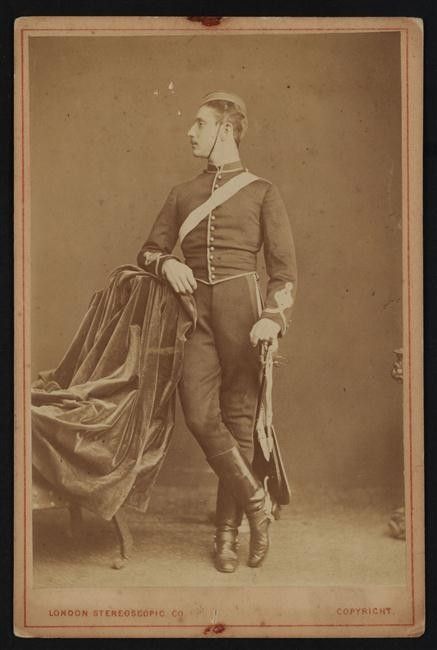
studio portrait of Napoléon Eugène, Prince Imperial
circa 1875
#Napoléon Eugène#Prince Imperial#Napoléon Eugène Louis Jean Joseph Bonaparte#exiled royalty#French#photography#1875#history#old photographs
39 notes
·
View notes
Text






Automne 1917, Hylewood, Canada (8/9)
Depuis le début de la guerre, la scène politique en Ontario est profondément influencée par les orangistes, qui sont fidèles à la monarchie et à l'Empire britannique. Les grands journaux de Toronto critiquent les Canadiens français pour ne pas contribuer à l'effort de guerre, et on nous impose depuis juillet le service militaire obligatoire… Quand on voit les efforts déployés par le R22eR, je trouve cela honteux.
A cause de sa politique francophobe, Ontario est la risée du Québec. Ils nous appellent « nos Boches à nous » et nous surnomment "Huntario", en référence aux invasions de peuples nomades au Moyen Âge… Quand on voit comment les Anglophones nous traitent, on comprend que nous soyons presque unanimement opposés à ce service et qu'il existe un si faible sentiment de loyauté des francophones pour le Canada.
Sur l’île, si on enlève ceux qui sont déjà en service, cette loi concernerait cinq hommes : mon beau-frère (alors qu’il a trois enfants, pensez-vous !), le mari de ma nièce Winie, le frère du jeune Zéphir (dont les malheureux parents font toujours le deuil), le Révérend de l’île (un homme d’église !), et un neveu de mon beau-frère. Cette loi n’est pas encore appliquée. Des élections fédérales vont avoir lieu en décembre, et nous en sauront davantage après cela.
[Transcription] Marie Le Bris : Sincèrement, Agathon, es-tu obligé de te montrer ainsi en spectacle ? On dirait que tu t’es coiffé avec un balais brosse. Si j’avais des cheveux comme les tiens, j’aurais au moins la décence de mettre une casquette. Winifred Bernard : Irène, chérie, ne court pas trop loin ! Jules Le Bris : Tout va bien, ma nièce ? Winifred Bernard : Bonsoir, mon oncle. J’aimerais profiter de ma soirée, mais mon aînée m’échappe comme une anguille. Eugénie Le Bris : Ah, les enfants, à cet âge là. Winifred Bernard : A qui le dites-vous ! Elle court partout, et je n’ai pas une minute de répit. Mais je ne peux pas la laisser sans surveillance. Jules Le Bris : Marie, toi qui te plaignais de t’ennuyer, ne veux-tu pas aller jouer avec ta cousine ? Marie Le Bris : C’est que je commence à m’habituer à l’ennui, et je tombe de sommeil, regardez comme mes yeux sont lourds. Non, je suis mieux ici. Eugénie Le Bris : Agathon, va jouer avec Irène. Vous avez pratiquement le même âge. Winifred Bernard : Laissez, Eugénie, Marie a raison, il se fait tard et la petite est fatiguée. C’est probablement pour cela qu’elle est si excitée. Je devrais rentrer la coucher. Quel dommage, je m’amusais beaucoup…
#ts3#simblr#legacy challenge#history challenge#decades challenge#lebris#lebrisgen3ter#Jules Le Bris#Eugénie Bernard#Marie Le Bris III#Agathon Le Bris#Winifred Simmon#Irène Bernard#Ferdinand Bernard#Earnest Simmon#Lucien Bernard#Napoléon Bernard#Louis Rumédier#Zéphir Rumédier#Eugène Rumédier#Marie Rumédier
4 notes
·
View notes
Text


A gift for my dear friend, @all-yn-oween !! <33
I heard you liked Good Omens, and, although I haven't watched the series, I thought Gustave and Louis would look nice dressed as Crowley and Aziraphale :]
Bonus:
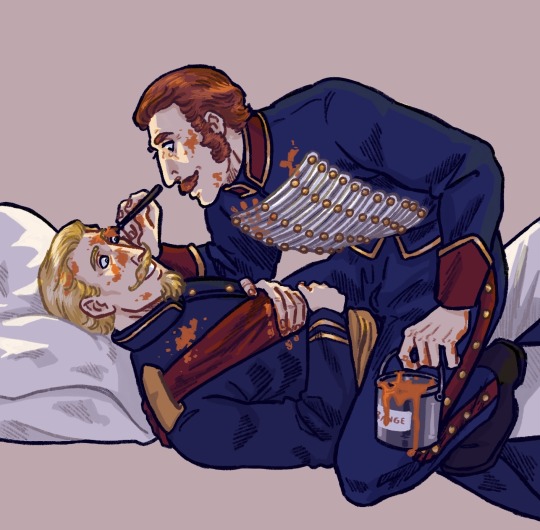
Inspired by the original meme and your fic, The Gossip Queens ;)
Enjoy your day!!!
#Have a nice day my friend!!! 🥳#<33#Allyn#✨️gossip queens✨️#Louis & Gustave#Louis Napoléon#Gustave Bréant (Allyn's OC)#natm OCs#my drawings
28 notes
·
View notes
Text
Some drawings of OCs :’)

(We can see a new comer in the up left corner, but shhhh :)
I also took references for most of them!
#night at the museum#natm#natm fandom#natm ocs#vasily korsakoff (liden’s oc)#pyotr korsakoff (liden’s oc)#dimitri vavilov (liden’s oc)#general custer#gustave bréant (oc)#✨gossip queens✨#louis Napoléon#napoléon iii#jimmy consentini (oc)#barbara (oc)#(she doesn’t have a surname yet)#natm fanart#my art :)
37 notes
·
View notes
Text

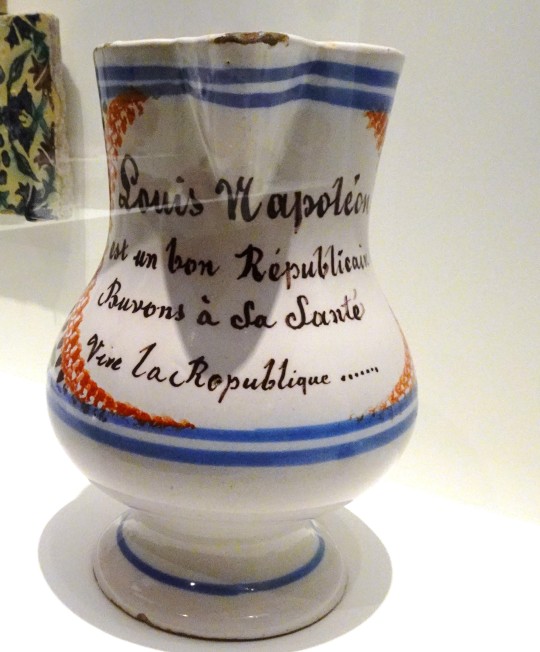
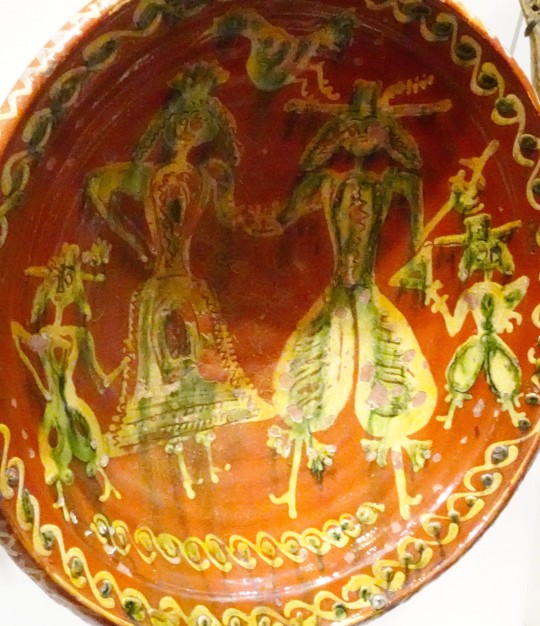


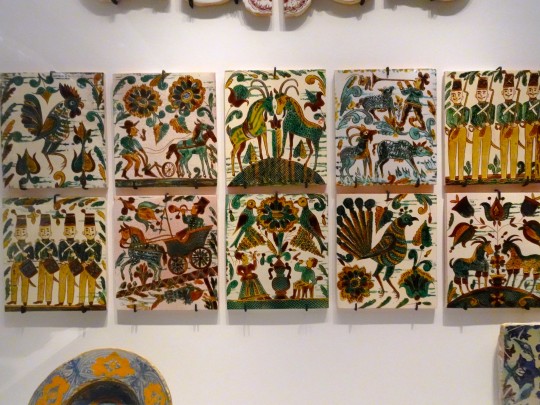
Marseille, le MuCEM et sa nouvelle collection permanente (à mes yeux, bien plus intéressante et mieux présentée que la précédente…)
Suite et fin, enfin !!!
carreaux de revêtement - Kosiv, Ukraine, XXe s.
pichet en l'honneur de Louis-Napoléon Bonaparte - Aisne ou Somme, 1850. "Louis-Napoléon est un bon républicain...". Certains sont visionnaires, d'autres.....
plat - Picardie, 1600
terrine à pâté - Maine-et-Loire, 1800
pichet de noces - Bals, Olténie, Roumanie, fin XXe s. ; femme, ateliers de Marie Talbot - La Borne, Cher, 1838
voir 1
#marseille#MuCEM#kosiv#faïence#ukraine#louis-napoléon bonaparte#napoléon III#picardie#terrine#lapin#pichet#olténie#roumanie#cher#marie talbot#la borne
4 notes
·
View notes
Text
Contrary to what some people have been saying, Trump did not quote Napoleon Bonaparte. He quoted something from a film about Napoleon. A significant number of "Napoleon quotes" cannot be traced to him.
Donald Trump appeared to quote Napoleon Bonaparte by way of Rod Steiger on Saturday afternoon after his blitzkrieg of executive actions and threats to federal agencies under Elon Musk were challenged in courts across the country, raising alarms that his administration is preparing to shred court orders and ignite a constitutional crisis. “He who saves his Country does not violate any Law,” the president wrote on Truth Social and X.
For starters, it's an enormous stretch to claim that Trump is "saving" the country. It's more accurate to say that he is wrecking America – the way he wrecked most of his businesses which included six bankruptcies. By posting that comment, Trump is unintentionally implying that it would not violate the law to overthrow him in a coup.
The president — whose efforts to gut federal funding, fire thousands of aid workers and unilaterally redefine the 14th Amendment were blocked in federal courts across the country in recent days — invoked a quote often attributed to Napoleon, who justified his despotic regime as the will of the people of France. The quote from a president with his own imperial ambitions appeared to come from the 1970 film Waterloo, in which Steiger’s Napoleon states that he “did not ‘usurp’ the crown.” [ ... ] Within his first month in office, Trump’s allies have baselessly argued Trump’s supreme authority as president, immune from checks and balances, as his executive orders and Musk’s access to the levers of government face an avalanche of lawsuits and restraining orders.
Trump and his lickspittles may be comparing him to Napoleon, but they may be channeling the imperial presidency ambitions of Richard Nixon.

In the end, Nixon did not get away with his power grab. Congress stood up to him.
Under Trump, Capitol Hill Republicans have shown that jellyfish have firmer spines than they do.
In any case, when it comes to French rulers, it's not Napoleon but King Louis XIV whose mindset Trump is embracing.
Trump, now seemingly invoking his own “l’etat, c’est moi” maxim, routinely conflated the criminal and civil cases against him with an attack on the American people and rule of law itself during his campaign.
#l'état c'est moi#louis xiv#napoléon#autocracy#donald trump#maga#republicans#rule of law#richard nixon#watergate
2 notes
·
View notes
Text

1807, Friedland by Jean-Louis-Ernest Meissonier
#jean louis ernest meissonier#art#battle of friedland#napoleonic wars#cavalry#emperor#napoleon bonaparte#napoléon bonaparte#french#france#prussia#russia#germany#french empire#first french empire#history#europe#european#napoleonic#napoleon#napoléon#bonaparte
64 notes
·
View notes
Text
So I was giggling at Napoleon’s signature here and how odd his handwriting is.

The content of letter was less funny. It was a condolence letter from Napoleon to Berthier:
“My cousin, I share in your pain. The loss of a father is always sensitive. I know you and I understand your sorrows […]”
"Mon cousin je prends part à votre douleur. la perte d'un pere est toujours sensible. je vous connais et je comprends vos peines (...)" Saint-Cloud, 3 prairial an XII (23 mai 1804).
Source: Sotheby’s — Une famille et Napoléon, Collections du Maréchal Berthier, Prince de Wagram
#napoleon#napoleonic era#napoleon bonaparte#napoleonic#Berthier#louis alexandre berthier#first french empire#Napoleon’s signature#marshal Berthier#Sotheby’s#auctions#french empire#Une famille et Napoléon Collections du Maréchal Berthier Prince de Wagram#correspondence of Napoleon
27 notes
·
View notes